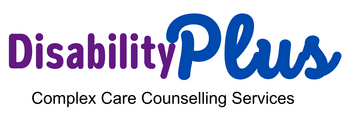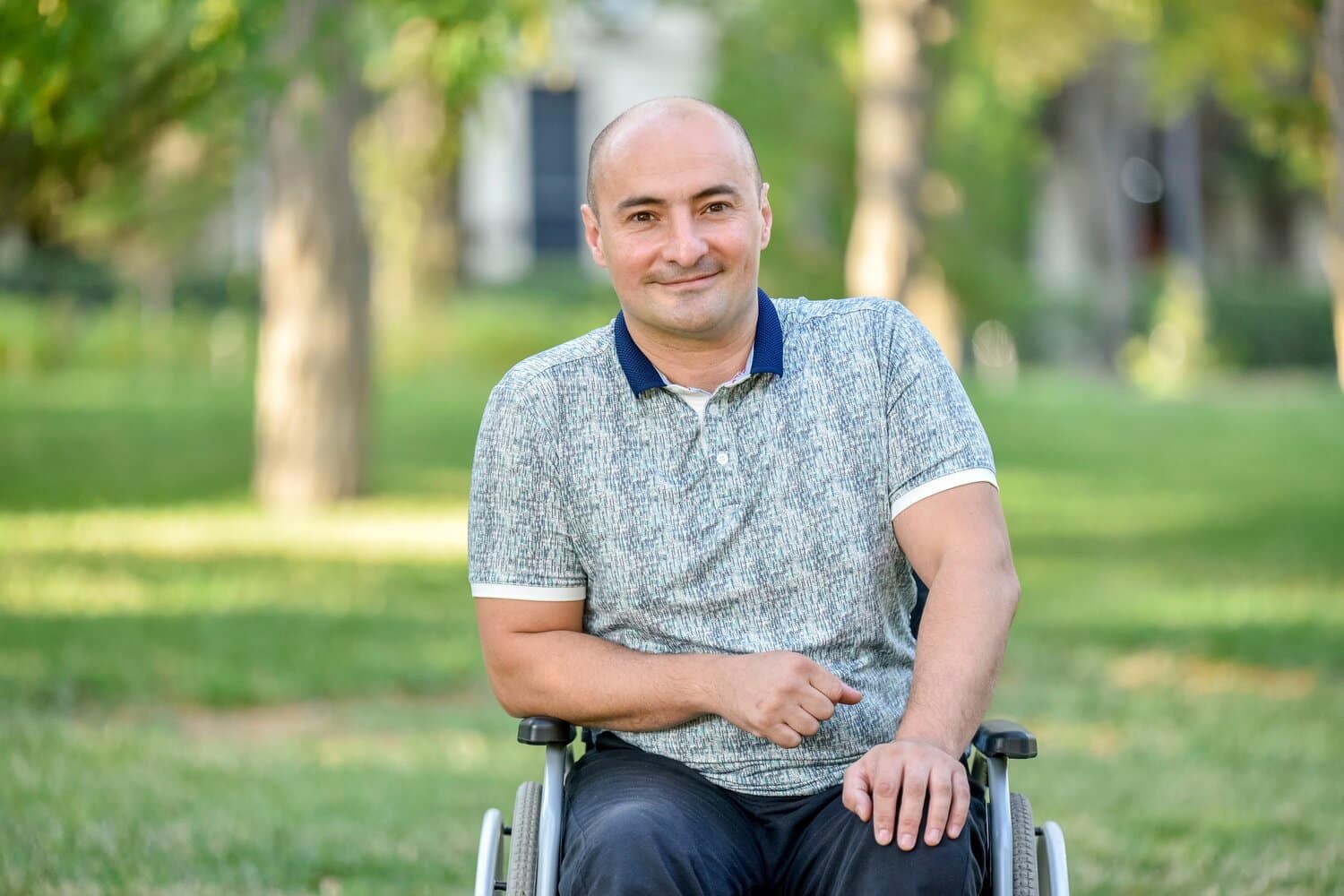Specialist ADHD Counselling With Lived Experience
Feeling Overwhelmed? Find Focus and Clarity with ADHD Counselling.
We recognise that ADHD is a disability, even though it often goes unrecognised. Our team of experienced therapists, many with ADHD themselves, understands the unique challenges you face. Access specialist mental health counselling for ADHD online and connect with a therapist who truly gets it.
"Client with ADHD, Therapist with ADHD"
Our ADHD therapists offer more than just clinical expertise – they bring their own lived experience of ADHD, providing genuine understanding and support on your journey.
Supporting all Types of ADHD
We support adults with ADHD aged 16 and over, no matter where you are on your ADHD journey. Whether you’re seeking help with focus, organisation, impulsivity, emotional regulation, or navigating life’s challenges, our therapists are here to help.
Specialist ASD Counselling
Our therapy can help you:
- Improve focus and attention
- Manage impulsivity and hyperactivity
- Develop effective organisation and time management skills
- Navigate emotional regulation and relationship challenges
- Build self-esteem and confidence
Ask us a Question
What Clients Say about us
Counselling Fees
Self-Refer Today
Organisations Referral

ADHD Counselling Tailored to You
Our ADHD counseling services are designed to meet your unique needs and help you thrive.
Understanding and Accepting Your ADHD
We’ll help you explore your ADHD, build self-esteem, and embrace your strengths. This might involve:
- Processing a recent diagnosis
- Understanding your challenges with focus, impulsivity, and hyperactivity
- Identifying and appreciating your unique ADHD traits.
Improving Focus and Executive Function
We’ll help you develop strategies to improve focus, organisation, and time management. This might involve:
- Learning techniques to manage distractions and improve concentration
- Developing organisational systems and routines
- Improving planning and prioritisation skills
Managing Emotions and Impulsivity
We’ll provide strategies for coping with emotional dysregulation, impulsivity, and challenging situations. This could include:
- Developing coping mechanisms for emotional overwhelm
- Learning emotional regulation techniques
- Building distress tolerance skills
Developing Fulfilling Relationships
We’ll support you in fostering healthy relationships with family, friends, and romantic partners. This could include:
- Communicating your needs effectively
- Setting boundaries and navigating social expectations
- Building intimacy and understanding in relationships
Achieving Your Goals and Living Authentically
We’ll empower you to pursue your passions and live a fulfilling life that aligns with your values. This might involve:
- Identifying your strengths and interests
- Overcoming challenges and pursuing your goals
- Advocating for your needs and accommodations
Coping with Stigma and Misconceptions
We’ll provide a safe space to process your experiences and develop strategies for self-advocacy. This could include:
- Addressing internalised negative beliefs about ADHD
- Developing assertiveness skills
- Finding ways to challenge stigma and misconceptions.
Real Stories, Real Change: What Our Clients Say
See how our specialised ADHD counselling has helped adults like you. Read these inspiring stories and discover how we’ve empowered individuals to overcome challenges, build confidence, and create positive change in their lives.
Before therapy, I was constantly clashing with my family. I felt like they didn’t understand my ADHD. Working with Rebecca helped me explain my struggles and learn better ways to communicate.
My relationship with my partner was on the rocks. I felt like I couldn’t explain how my ADHD was affecting me. Jane helped me understand myself better and gave me the tools to communicate more effectively with my partner.
I finally feel like I understand my ADHD. Rebecca helped me see my ADHD not just as a set of challenges, but also as a source of strengths. I’m learning to work with my ADHD, not against it.
I was drowning in clutter and constantly losing things. Rebecca helped me implement practical organisation systems that work for my ADHD brain. I can’t believe the difference it’s made!
I was struggling to hold down a job because of my ADHD. Matthew helped me understand how my ADHD was affecting my work and gave me practical strategies to stay organised and focused.
I always felt different and not good enough.Sue helped me see my strengths and accept myself for who I am. Now I feel more confident and happy.
Therapy gave me the coping skills I desperately needed. I always felt overwhelmed, but now I have strategies to manage my emotions and stay calm in stressful situations.
I used to feel so ashamed of my ADHD. Jane helped me see that it’s okay to be different. I’m learning to accept myself and believe in my abilities
My anxiety was through the roof before I started therapy. Working with Matthew has helped me understand my anxiety and develop coping mechanisms. I feel so much more in control now.

Session Fees/Pricing
We believe everyone should have access to ADHD mental health counselling. That’s why we offer reduced rates to the public, with sessions starting at just £50 for 50 minutes.
Our Fees:
Initial Session: £50
£180 for every three sessions after the initial session.

Benefits
Prioritise Your Well-being: Invest in ADHD Support
While we don’t offer free NHS sessions, our specialist ADHD therapy provides exceptional value. You’ll work with experienced therapists who genuinely understand ADHD, many with lived experience.
If you’re ready to take control and start your journey to a better life with ADHD, our self-pay option allows you to begin immediately without the wait.

Professional Referrals
We proudly collaborate with:
- Employment Support Companies
- GPs
- Mental Health Providers
- Schools & Universities
- Charities
And many more Professionals & Organisations to ensure Comprehensive Care for our Clients.
Self-Refer
Self-Refer
Referrals
Our Posts


Procrastination?
Procrastination is a common struggle for people with ADHD, often linked to difficulties with planning, prioritising, and initiating tasks.
Procrastination can lead to missed deadlines, increased stress, and overwhelming feelings. It can also contribute to low self-esteem and anxiety.
ADHD counselling can help individuals overcome procrastination by teaching them time management techniques, organisational strategies, and ways to break down tasks into manageable steps.
Therapists can also help clients identify and address underlying fears or anxieties that may be contributing to procrastination.
Therapy can help individuals improve their productivity, reduce stress, and achieve their goals by addressing procrastination.
Rejection Sensitive Dysphoria (RSD)?
RSD is a common experience for adults with ADHD, characterised by intense emotional sensitivity to perceived criticism or rejection.
This can lead to overwhelming feelings of shame, sadness, or anger, often disproportionate to the situation. RSD can significantly impact self-esteem and relationships.
Our ADHD counselling provides a safe and understanding environment to explore and manage RSD.
We can help you identify triggers, develop coping mechanisms for emotional overwhelm, and challenge negative thought patterns.
Our therapists will work with you to build resilience, increase self-compassion, and navigate relationships more confidently.
Obsessive-Compulsive Disorder (OCD)?
While less prevalent, some adults with ADHD also experience OCD. This involves intrusive thoughts and repetitive behaviours aimed at reducing anxiety.
The combination of ADHD and OCD can create significant challenges in managing daily life.
Our experienced therapists can help you address both ADHD and OCD.
We’ll work with you to develop strategies for managing intrusive thoughts, reducing anxiety, and breaking free from compulsive behaviours.
We can provide tools and techniques to improve your focus, organisation, and well-being.
Substance Use Disorders?
Adults with ADHD may be more susceptible to substance use disorders. This can be due to attempts to self-medicate for ADHD symptoms or to cope with co-occurring mental health challenges like anxiety or depression.
Our ADHD counselling can help you address substance use concerns.
We provide a supportive, non-judgmental space for exploring the underlying reasons for substance use, developing coping mechanisms, and creating a recovery plan.
We can also connect you with additional resources and support networks.
ADHD & Mental Health?
Inattention?
People with ADHD often struggle with inattention, finding it difficult to focus on tasks, conversations, or instructions.
This can lead to missed deadlines, forgetfulness, and an overwhelmed sense.
Inattention can significantly impact academic performance, work productivity, and relationships. It can also contribute to feelings of frustration, low self-esteem, and anxiety.
ADHD counselling can provide individuals with strategies to manage inattention. Therapists can help clients develop organisational skills, time management techniques, and distraction coping mechanisms.
They can also teach mindfulness techniques to improve focus and attention. By addressing inattention, therapy can help individuals improve their overall functioning and reduce the negative impact on their mental health.
Hyperactivity?
Hyperactivity is another common challenge for people with ADHD, characterised by restlessness, fidgeting, and difficulty staying still.
This can be disruptive in quiet environments and can lead to social difficulties. Hyperactivity can also make it challenging to relax and unwind, contributing to sleep problems and anxiety.
ADHD counselling can help individuals manage hyperactivity by teaching them relaxation techniques, mindfulness practices, and coping strategies.
Therapists can also help clients identify healthy outlets for their energy, such as exercise or creative activities.
By addressing hyperactivity, therapy can help individuals feel more in control of their bodies and reduce the negative impact on their mental health and relationships.
Impulsivity?
Impulsivity is a hallmark of ADHD. It often manifests as acting without thinking, interrupting others, or having difficulty waiting their turn.
This can lead to social difficulties, strained relationships, and risky behaviours. Impulsivity can also contribute to regret, guilt, and low self-esteem.
ADHD counselling can help individuals manage impulsivity by teaching them self-regulation skills, impulse control techniques, and problem-solving strategies.
Therapists can also help clients identify triggers for impulsive behaviour and develop coping mechanisms.
By addressing impulsivity, therapy can help individuals make more thoughtful choices and improve their relationships and overall well-being.
Disorganisation?
People with ADHD often struggle with disorganisation, finding it challenging to keep track of belongings, manage their time effectively, and prioritise tasks.
This can lead to missed deadlines, lost items, and chaos. Disorganisation can also contribute to feelings of overwhelm, anxiety, and low self-esteem.
ADHD counselling can provide individuals with practical strategies to improve organisation and time management skills.
Therapists can help clients develop systems for keeping track of belongings, managing their schedules, and breaking down tasks into manageable steps.
By addressing disorganisation, therapy can help individuals feel more in control of their lives and reduce stress and anxiety.
Emotional Regulation Challenges?
Emotional dysregulation is a common challenge for people with ADHD, characterised by intense emotions, mood swings, and difficulty managing frustration or anger.
This can lead to outbursts, difficulty maintaining relationships, and social isolation. Emotional dysregulation can also contribute to anxiety, depression, and low self-esteem.
ADHD counselling can help individuals develop emotional regulation skills by teaching them coping mechanisms, relaxation techniques, and mindfulness practices.
Therapists can also help clients identify triggers for emotional outbursts and develop strategies to manage their emotions effectively.
Therapy can help individuals improve their relationships, reduce stress, and enhance their overall well-being by addressing emotional dysregulation.
Low Self-Esteem?
Many individuals with ADHD struggle with low self-esteem, often stemming from negative experiences related to their ADHD symptoms.
They may internalise criticism, feel inadequate, and struggle with self-doubt.
Low self-esteem can impact relationships, academic performance, and career aspirations.
ADHD counselling can help individuals address low self-esteem by fostering self-compassion, challenging negative self-talk, and building on their strengths.
Therapists can help clients identify and challenge negative thought patterns and develop a more positive self-image.
By addressing low self-esteem, therapy can empower individuals to embrace their strengths and confidently pursue their goals.
Relationship Difficulties?
ADHD can significantly impact relationships, leading to challenges with communication, social skills, and maintaining healthy connections.
Individuals with ADHD may struggle with impulsivity in conversations, difficulty reading social cues, and maintaining focus in social interactions.
These challenges can lead to misunderstandings, conflict, and social isolation.
ADHD counselling can help individuals improve their relationships by teaching practical communication skills, social strategies, and conflict-resolution techniques.
Therapists can also help clients develop empathy and improve their ability to understand and respond to others’ needs.
Therapy can help individuals build stronger, more fulfilling connections by addressing relationship difficulties.
Sleep Problems?
Sleep problems are common in individuals with ADHD, often due to hyperactivity, racing thoughts, and difficulty relaxing.
Poor sleep can exacerbate ADHD symptoms, leading to increased inattention, impulsivity, and emotional dysregulation. It can also contribute to anxiety, depression, and other mental health concerns.
ADHD counselling can help individuals address sleep problems by teaching them relaxation techniques, sleep hygiene practices, and strategies for managing racing thoughts.
Therapists can also help clients identify and address underlying anxiety or other factors that may be contributing to sleep difficulties.
By improving sleep quality, therapy can help individuals manage their ADHD symptoms more effectively and improve their overall mental health.
Anxiety?
Anxiety is often experienced by individuals with ADHD, stemming from challenges with focus, organisation, social interactions, and meeting expectations.
Anxiety can manifest as excessive worry, nervousness, and difficulty relaxing. It can also contribute to sleep problems, emotional dysregulation, and avoidance behaviours.
ADHD counselling can help individuals manage anxiety by teaching them relaxation techniques, coping mechanisms, and mindfulness practices.
Therapists can also help clients identify and challenge anxious thoughts and develop strategies for managing stressful situations.
By addressing anxiety, therapy can help individuals reduce their overall stress levels and improve their ability to cope with the challenges of ADHD.
Depression?
Depression is a significant concern for many adults with ADHD.
Challenges with focus, organisation, and achieving goals can lead to feelings of frustration, failure, and low self-worth.
Difficulties in relationships and negative self-perception can also contribute to depression.
Our ADHD counselling offers support and guidance for those experiencing depression.
We can help you identify and challenge negative thought patterns, build self-compassion, and develop coping strategies to manage depressive symptoms. Our therapists will work with you to address the root causes of depression, build resilience, and foster a more positive outlook.
Support groups
If you would like support from a online community click below: this is not run or organised by DisabilityPlus.
Find the Right Support for Your Journey
At DisabilityPlus, we understand that every individual’s mental health journey is unique. That’s why we offer comprehensive counselling services designed to cater to your specific needs.
Click & Select your counselling service
Specialist ADHD Counselling With Lived Experience
Feeling Overwhelmed? Find Focus and Clarity with ADHD Counselling.
We recognise that ADHD is a disability, even though it often goes unrecognised. Our team of experienced therapists, many with ADHD themselves, understands the unique challenges you face. Access specialist mental health counselling for ADHD online and connect with a therapist who truly gets it.
Client ADHD, Therapist with ADHD"
Our ADHD therapists offer more than just clinical expertise – they bring their own lived experience of ADHD, providing genuine understanding and support on your journey.
Supporting all Types of ADHD
We support adults with ADHD aged 16 and over, no matter where you are on your ADHD journey. Whether you’re seeking help with focus, organisation, impulsivity, emotional regulation, or navigating life’s challenges, our therapists are here to help.
Specialist ADHD Counselling
Our therapy can help you:
- Improve focus and attention
- Manage impulsivity and hyperactivity
- Develop effective organisation and time management skills
- Navigate emotional regulation and relationship challenges
- Build self-esteem and confidence
Ask us a Question
What Clients Say about us
Counselling Fees
Self-Refer Today

ADHD Counselling Tailored to You
Our ADHD counseling services are designed to meet your unique needs and help you thrive.
Understanding and Accepting Your ADHD
We’ll help you explore your ADHD, build self-esteem, and embrace your strengths. This might involve:
- Processing a recent diagnosis
- Understanding your challenges with focus, impulsivity, and hyperactivity
- Identifying and appreciating your unique ADHD traits.
Improving Focus and Executive Function
We’ll help you develop strategies to improve focus, organisation, and time management. This might involve:
- Learning techniques to manage distractions and improve concentration
- Developing organisational systems and routines
- Improving planning and prioritisation skills

Managing Emotions and Impulsivity
We’ll provide strategies for coping with emotional dysregulation, impulsivity, and challenging situations. This could include:
- Developing coping mechanisms for emotional overwhelm
- Learning emotional regulation techniques
- Building distress tolerance skills
Developing Fulfilling Relationships
We’ll support you in fostering healthy relationships with family, friends, and romantic partners. This could include:
- Communicating your needs effectively
- Setting boundaries and navigating social expectations
- Building intimacy and understanding in relationships
Achieving Your Goals and Living Authentically
We’ll empower you to pursue your passions and live a fulfilling life that aligns with your values. This might involve:
- Identifying your strengths and interests
- Overcoming challenges and pursuing your goals
- Advocating for your needs and accommodations
Coping with Stigma and Misconceptions
We’ll provide a safe space to process your experiences and develop strategies for self-advocacy. This could include:
- Addressing internalised negative beliefs about ADHD
- Developing assertiveness skills
- Finding ways to challenge stigma and misconceptions.

Session Fees/Pricing
We believe everyone should have access to counselling. That’s why we offer reduced rates to the public, with sessions starting at just £50 for 50 minutes.
Our Fees:
Initial Session: £50
Following Sessions: £180 for every three sessions after that.

Benefits
Investing in your mental health is an investment in yourself.
While we don’t offer free NHS sessions, our specialist ADHD therapy provides unique value to experienced therapists who genuinely understand your needs.
If you’re seeking support without the wait, our self-pay option allows you to begin your journey immediately.

Real Stories, Real Change: What Our Clients Say
See how our specialised ADHD counselling has helped adults like you. Read these inspiring stories and discover how we’ve empowered individuals to overcome challenges, build confidence, and create positive change in their lives.
Before therapy, I was constantly clashing with my family. I felt like they didn’t understand my ADHD. Working with Rebecca helped me explain my struggles and learn better ways to communicate.
My relationship with my partner was on the rocks. I felt like I couldn’t explain how my ADHD was affecting me. Jane helped me understand myself better and gave me the tools to communicate more effectively with my partner.
I finally feel like I understand my ADHD. Rebecca helped me see my ADHD not just as a set of challenges, but also as a source of strengths. I’m learning to work with my ADHD, not against it.
I was drowning in clutter and constantly losing things. Rebecca helped me implement practical organisation systems that work for my ADHD brain. I can’t believe the difference it’s made!
I was struggling to hold down a job because of my ADHD. Matthew helped me understand how my ADHD was affecting my work and gave me practical strategies to stay organised and focused.
I always felt different and not good enough.Sue helped me see my strengths and accept myself for who I am. Now I feel more confident and happy.
Therapy gave me the coping skills I desperately needed. I always felt overwhelmed, but now I have strategies to manage my emotions and stay calm in stressful situations.
I used to feel so ashamed of my ADHD. Jane helped me see that it’s okay to be different. I’m learning to accept myself and believe in my abilities
My anxiety was through the roof before I started therapy. Working with Matthew has helped me understand my anxiety and develop coping mechanisms. I feel so much more in control now.
Mental Health with Autism
While anyone can experience mental health challenges, autistic individuals often face unique stressors and barriers that significantly impact their well-being.
It’s crucial to recognise that their mental health needs are distinct from those of the general population and require specialised support and understanding from therapists who are familiar with the autistic experience.
Obsessive-Compulsive Disorder
While less prevalent, some adults with ADHD also experience OCD. This involves intrusive thoughts and repetitive behaviours aimed at reducing anxiety.
The combination of ADHD and OCD can create significant challenges in managing daily life.
Our experienced therapists can help you address both ADHD and OCD.
We’ll work with you to develop strategies for managing intrusive thoughts, reducing anxiety, and breaking free from compulsive behaviours.
We can provide tools and techniques to improve your focus, organisation, and well-being.
Rejection Sensitive Dysphoria (RSD)?
RSD is a common experience for adults with ADHD, characterised by intense emotional sensitivity to perceived criticism or rejection.
This can lead to overwhelming feelings of shame, sadness, or anger, often disproportionate to the situation. RSD can significantly impact self-esteem and relationships.
Our ADHD counselling provides a safe and understanding environment to explore and manage RSD.
We can help you identify triggers, develop coping mechanisms for emotional overwhelm, and challenge negative thought patterns.
Our therapists will work with you to build resilience, increase self-compassion, and navigate relationships more confidently.
Substance Use Disorders?
Adults with ADHD may be more susceptible to substance use disorders. This can be due to attempts to self-medicate for ADHD symptoms or to cope with co-occurring mental health challenges like anxiety or depression.
Our ADHD counselling can help you address substance use concerns.
We provide a supportive, non-judgmental space for exploring the underlying reasons for substance use, developing coping mechanisms, and creating a recovery plan.
We can also connect you with additional resources and support networks.
Procrastination?
Procrastination is a common struggle for people with ADHD, often linked to difficulties with planning, prioritising, and initiating tasks.
Procrastination can lead to missed deadlines, increased stress, and overwhelming feelings. It can also contribute to low self-esteem and anxiety.
ADHD counselling can help individuals overcome procrastination by teaching them time management techniques, organisational strategies, and ways to break down tasks into manageable steps.
Therapists can also help clients identify and address underlying fears or anxieties that may be contributing to procrastination.
Therapy can help individuals improve their productivity, reduce stress, and achieve their goals by addressing procrastination.
Hyperactivity?
Hyperactivity is another common challenge for people with ADHD, characterised by restlessness, fidgeting, and difficulty staying still.
This can be disruptive in quiet environments and can lead to social difficulties. Hyperactivity can also make it challenging to relax and unwind, contributing to sleep problems and anxiety.
ADHD counselling can help individuals manage hyperactivity by teaching them relaxation techniques, mindfulness practices, and coping strategies.
Therapists can also help clients identify healthy outlets for their energy, such as exercise or creative activities.
By addressing hyperactivity, therapy can help individuals feel more in control of their bodies and reduce the negative impact on their mental health and relationships.
Anxiety?
Anxiety is often experienced by individuals with ADHD, stemming from challenges with focus, organisation, social interactions, and meeting expectations.
Anxiety can manifest as excessive worry, nervousness, and difficulty relaxing. It can also contribute to sleep problems, emotional dysregulation, and avoidance behaviours.
ADHD counselling can help individuals manage anxiety by teaching them relaxation techniques, coping mechanisms, and mindfulness practices.
Therapists can also help clients identify and challenge anxious thoughts and develop strategies for managing stressful situations.
By addressing anxiety, therapy can help individuals reduce their overall stress levels and improve their ability to cope with the challenges of ADHD.
Depression?
Depression is a significant concern for many adults with ADHD.
Challenges with focus, organisation, and achieving goals can lead to feelings of frustration, failure, and low self-worth.
Difficulties in relationships and negative self-perception can also contribute to depression.
Our ADHD counselling offers support and guidance for those experiencing depression.
We can help you identify and challenge negative thought patterns, build self-compassion, and develop coping strategies to manage depressive symptoms. Our therapists will work with you to address the root causes of depression, build resilience, and foster a more positive outlook.
Emotional Regulation Challenges?
Emotional dysregulation is a common challenge for people with ADHD, characterised by intense emotions, mood swings, and difficulty managing frustration or anger.
This can lead to outbursts, difficulty maintaining relationships, and social isolation. Emotional dysregulation can also contribute to anxiety, depression, and low self-esteem.
ADHD counselling can help individuals develop emotional regulation skills by teaching them coping mechanisms, relaxation techniques, and mindfulness practices.
Therapists can also help clients identify triggers for emotional outbursts and develop strategies to manage their emotions effectively.
Therapy can help individuals improve their relationships, reduce stress, and enhance their overall well-being by addressing emotional dysregulation.
Relationship Difficulties?
ADHD can significantly impact relationships, leading to challenges with communication, social skills, and maintaining healthy connections.
Individuals with ADHD may struggle with impulsivity in conversations, difficulty reading social cues, and maintaining focus in social interactions.
These challenges can lead to misunderstandings, conflict, and social isolation.
ADHD counselling can help individuals improve their relationships by teaching practical communication skills, social strategies, and conflict-resolution techniques.
Therapists can also help clients develop empathy and improve their ability to understand and respond to others’ needs.
Therapy can help individuals build stronger, more fulfilling connections by addressing relationship difficulties.
Inattention?
People with ADHD often struggle with inattention, finding it difficult to focus on tasks, conversations, or instructions.
This can lead to missed deadlines, forgetfulness, and an overwhelmed sense.
Inattention can significantly impact academic performance, work productivity, and relationships. It can also contribute to feelings of frustration, low self-esteem, and anxiety.
ADHD counselling can provide individuals with strategies to manage inattention. Therapists can help clients develop organisational skills, time management techniques, and distraction coping mechanisms.
They can also teach mindfulness techniques to improve focus and attention. By addressing inattention, therapy can help individuals improve their overall functioning and reduce the negative impact on their mental health.
Impulsivity?
Impulsivity is a hallmark of ADHD. It often manifests as acting without thinking, interrupting others, or having difficulty waiting their turn.
This can lead to social difficulties, strained relationships, and risky behaviours. Impulsivity can also contribute to regret, guilt, and low self-esteem.
ADHD counselling can help individuals manage impulsivity by teaching them self-regulation skills, impulse control techniques, and problem-solving strategies.
Therapists can also help clients identify triggers for impulsive behaviour and develop coping mechanisms.
By addressing impulsivity, therapy can help individuals make more thoughtful choices and improve their relationships and overall well-being.
Disorganisation?
People with ADHD often struggle with disorganisation, finding it challenging to keep track of belongings, manage their time effectively, and prioritise tasks.
This can lead to missed deadlines, lost items, and chaos. Disorganisation can also contribute to feelings of overwhelm, anxiety, and low self-esteem.
ADHD counselling can provide individuals with practical strategies to improve organisation and time management skills.
Therapists can help clients develop systems for keeping track of belongings, managing their schedules, and breaking down tasks into manageable steps.
By addressing disorganisation, therapy can help individuals feel more in control of their lives and reduce stress and anxiety.
Low Self-Esteem?
Many individuals with ADHD struggle with low self-esteem, often stemming from negative experiences related to their ADHD symptoms.
They may internalise criticism, feel inadequate, and struggle with self-doubt.
Low self-esteem can impact relationships, academic performance, and career aspirations.
ADHD counselling can help individuals address low self-esteem by fostering self-compassion, challenging negative self-talk, and building on their strengths.
Therapists can help clients identify and challenge negative thought patterns and develop a more positive self-image.
By addressing low self-esteem, therapy can empower individuals to embrace their strengths and confidently pursue their goals.
Sleep Problems?
Sleep problems are common in individuals with ADHD, often due to hyperactivity, racing thoughts, and difficulty relaxing.
Poor sleep can exacerbate ADHD symptoms, leading to increased inattention, impulsivity, and emotional dysregulation. It can also contribute to anxiety, depression, and other mental health concerns.
ADHD counselling can help individuals address sleep problems by teaching them relaxation techniques, sleep hygiene practices, and strategies for managing racing thoughts.
Therapists can also help clients identify and address underlying anxiety or other factors that may be contributing to sleep difficulties.
By improving sleep quality, therapy can help individuals manage their ADHD symptoms more effectively and improve their overall mental health.

Our Posts
Our Specialist Services
Click to Select

Specialist ADHD Counselling With Lived Experience
Feeling Overwhelmed? Find Focus and Clarity with ADHD Counselling.
We recognise that ADHD is a disability, even though it often goes unrecognised. Our team of experienced therapists, many with ADHD themselves, understands the unique challenges you face. Access specialist mental health counselling for ADHD online and connect with a therapist who truly gets it.
Enquiries
Self-Referral
"ADHD Client, Therapist with ADHD"
Our ADHD therapists offer more than just clinical expertise – they bring their own lived experience of ADHD, providing genuine understanding and support on your journey.
We support adults with ADHD aged 16 and over, no matter where you are on your ADHD journey. Whether you’re seeking help with focus, organisation, impulsivity, emotional regulation, or navigating life’s challenges, our therapists are here to help.

Specialist ASD Counselling
Our therapy can help you:
- Improve focus and attention
- Manage impulsivity and hyperactivity
- Develop effective organisation and time management skills
- Navigate emotional regulation and relationship challenges
- Build self-esteem and confidence

Self-Paid Mental Health Counselling for ADHD
Investing in your mental health is an investment in yourself.
While we don’t offer free NHS sessions, our specialist therapy provides unique value to experienced ADHD therapists who genuinely understand your needs.
If you’re seeking support without the wait, our self-pay option allows you to begin your journey immediately.
There are no waiting lists or GP reports.
Opting for self-pay ADHD counselling means you can commence your counselling journey typically within a week, offering immediate support when you need it most.
In line with our mission to deliver exceptional counselling, we are acutely aware of the importance of affordability.
Click the “Pricing” tab below for session pricing.
Pricing
Our subsidised rates are designed with your needs in mind:
- £50 first session
- £180 for every three sessions thereafter
These rates are set to reduce financial pressure for our clients.
Enquiries
Self-Referral

Professional Referrals
We welcome referrals from a variety of professional bodies, including Local Mental Health Services, Social Services, Educational Institutions, and through business-to-business arrangements.
Please get in touch to learn more or to proceed with a referral.

Procrastination?
Procrastination is a common struggle for people with ADHD, often linked to difficulties with planning, prioritising, and initiating tasks.
Procrastination can lead to missed deadlines, increased stress, and overwhelming feelings. It can also contribute to low self-esteem and anxiety.
ADHD counselling can help individuals overcome procrastination by teaching them time management techniques, organisational strategies, and ways to break down tasks into manageable steps.
Therapists can also help clients identify and address underlying fears or anxieties that may be contributing to procrastination.
Therapy can help individuals improve their productivity, reduce stress, and achieve their goals by addressing procrastination.
Rejection Sensitive Dysphoria (RSD)?
RSD is a common experience for adults with ADHD, characterised by intense emotional sensitivity to perceived criticism or rejection.
This can lead to overwhelming feelings of shame, sadness, or anger, often disproportionate to the situation. RSD can significantly impact self-esteem and relationships.
Our ADHD counselling provides a safe and understanding environment to explore and manage RSD.
We can help you identify triggers, develop coping mechanisms for emotional overwhelm, and challenge negative thought patterns.
Our therapists will work with you to build resilience, increase self-compassion, and navigate relationships more confidently.
Obsessive-Compulsive Disorder (OCD)?
While less prevalent, some adults with ADHD also experience OCD. This involves intrusive thoughts and repetitive behaviours aimed at reducing anxiety.
The combination of ADHD and OCD can create significant challenges in managing daily life.
Our experienced therapists can help you address both ADHD and OCD.
We’ll work with you to develop strategies for managing intrusive thoughts, reducing anxiety, and breaking free from compulsive behaviours.
We can provide tools and techniques to improve your focus, organisation, and well-being.
Substance Use Disorders?
Adults with ADHD may be more susceptible to substance use disorders. This can be due to attempts to self-medicate for ADHD symptoms or to cope with co-occurring mental health challenges like anxiety or depression.
Our ADHD counselling can help you address substance use concerns.
We provide a supportive, non-judgmental space for exploring the underlying reasons for substance use, developing coping mechanisms, and creating a recovery plan.
We can also connect you with additional resources and support networks.
Inattention?
People with ADHD often struggle with inattention, finding it difficult to focus on tasks, conversations, or instructions.
This can lead to missed deadlines, forgetfulness, and an overwhelmed sense.
Inattention can significantly impact academic performance, work productivity, and relationships. It can also contribute to feelings of frustration, low self-esteem, and anxiety.
ADHD counselling can provide individuals with strategies to manage inattention. Therapists can help clients develop organisational skills, time management techniques, and distraction coping mechanisms.
They can also teach mindfulness techniques to improve focus and attention. By addressing inattention, therapy can help individuals improve their overall functioning and reduce the negative impact on their mental health.
Hyperactivity?
Hyperactivity is another common challenge for people with ADHD, characterised by restlessness, fidgeting, and difficulty staying still.
This can be disruptive in quiet environments and can lead to social difficulties. Hyperactivity can also make it challenging to relax and unwind, contributing to sleep problems and anxiety.
ADHD counselling can help individuals manage hyperactivity by teaching them relaxation techniques, mindfulness practices, and coping strategies.
Therapists can also help clients identify healthy outlets for their energy, such as exercise or creative activities.
By addressing hyperactivity, therapy can help individuals feel more in control of their bodies and reduce the negative impact on their mental health and relationships.
Impulsivity?
Impulsivity is a hallmark of ADHD. It often manifests as acting without thinking, interrupting others, or having difficulty waiting their turn.
This can lead to social difficulties, strained relationships, and risky behaviours. Impulsivity can also contribute to regret, guilt, and low self-esteem.
ADHD counselling can help individuals manage impulsivity by teaching them self-regulation skills, impulse control techniques, and problem-solving strategies.
Therapists can also help clients identify triggers for impulsive behaviour and develop coping mechanisms.
By addressing impulsivity, therapy can help individuals make more thoughtful choices and improve their relationships and overall well-being.
Disorganisation?
People with ADHD often struggle with disorganisation, finding it challenging to keep track of belongings, manage their time effectively, and prioritise tasks.
This can lead to missed deadlines, lost items, and chaos. Disorganisation can also contribute to feelings of overwhelm, anxiety, and low self-esteem.
ADHD counselling can provide individuals with practical strategies to improve organisation and time management skills.
Therapists can help clients develop systems for keeping track of belongings, managing their schedules, and breaking down tasks into manageable steps.
By addressing disorganisation, therapy can help individuals feel more in control of their lives and reduce stress and anxiety.
Emotional Regulation Challenges?
Emotional dysregulation is a common challenge for people with ADHD, characterised by intense emotions, mood swings, and difficulty managing frustration or anger.
This can lead to outbursts, difficulty maintaining relationships, and social isolation. Emotional dysregulation can also contribute to anxiety, depression, and low self-esteem.
ADHD counselling can help individuals develop emotional regulation skills by teaching them coping mechanisms, relaxation techniques, and mindfulness practices.
Therapists can also help clients identify triggers for emotional outbursts and develop strategies to manage their emotions effectively.
Therapy can help individuals improve their relationships, reduce stress, and enhance their overall well-being by addressing emotional dysregulation.
Low Self-Esteem?
Many individuals with ADHD struggle with low self-esteem, often stemming from negative experiences related to their ADHD symptoms.
They may internalise criticism, feel inadequate, and struggle with self-doubt.
Low self-esteem can impact relationships, academic performance, and career aspirations.
ADHD counselling can help individuals address low self-esteem by fostering self-compassion, challenging negative self-talk, and building on their strengths.
Therapists can help clients identify and challenge negative thought patterns and develop a more positive self-image.
By addressing low self-esteem, therapy can empower individuals to embrace their strengths and confidently pursue their goals.
Relationship Difficulties?
ADHD can significantly impact relationships, leading to challenges with communication, social skills, and maintaining healthy connections.
Individuals with ADHD may struggle with impulsivity in conversations, difficulty reading social cues, and maintaining focus in social interactions.
These challenges can lead to misunderstandings, conflict, and social isolation.
ADHD counselling can help individuals improve their relationships by teaching practical communication skills, social strategies, and conflict-resolution techniques.
Therapists can also help clients develop empathy and improve their ability to understand and respond to others’ needs.
Therapy can help individuals build stronger, more fulfilling connections by addressing relationship difficulties.
Sleep Problems?
Sleep problems are common in individuals with ADHD, often due to hyperactivity, racing thoughts, and difficulty relaxing.
Poor sleep can exacerbate ADHD symptoms, leading to increased inattention, impulsivity, and emotional dysregulation. It can also contribute to anxiety, depression, and other mental health concerns.
ADHD counselling can help individuals address sleep problems by teaching them relaxation techniques, sleep hygiene practices, and strategies for managing racing thoughts.
Therapists can also help clients identify and address underlying anxiety or other factors that may be contributing to sleep difficulties.
By improving sleep quality, therapy can help individuals manage their ADHD symptoms more effectively and improve their overall mental health.
Anxiety?
Anxiety is often experienced by individuals with ADHD, stemming from challenges with focus, organisation, social interactions, and meeting expectations.
Anxiety can manifest as excessive worry, nervousness, and difficulty relaxing. It can also contribute to sleep problems, emotional dysregulation, and avoidance behaviours.
ADHD counselling can help individuals manage anxiety by teaching them relaxation techniques, coping mechanisms, and mindfulness practices.
Therapists can also help clients identify and challenge anxious thoughts and develop strategies for managing stressful situations.
By addressing anxiety, therapy can help individuals reduce their overall stress levels and improve their ability to cope with the challenges of ADHD.
Depression?
Depression is a significant concern for many adults with ADHD.
Challenges with focus, organisation, and achieving goals can lead to feelings of frustration, failure, and low self-worth.
Difficulties in relationships and negative self-perception can also contribute to depression.
Our ADHD counselling offers support and guidance for those experiencing depression.
We can help you identify and challenge negative thought patterns, build self-compassion, and develop coping strategies to manage depressive symptoms. Our therapists will work with you to address the root causes of depression, build resilience, and foster a more positive outlook.

Real Stories, Real Change: What Our Clients Say
See how our specialised ADHD counselling has helped adults like you. Read these inspiring stories and discover how we’ve empowered individuals to overcome challenges, build confidence, and create positive change in their lives.
Before therapy, I was constantly clashing with my family. I felt like they didn’t understand my ADHD. Working with Rebecca helped me explain my struggles and learn better ways to communicate.
My relationship with my partner was on the rocks. I felt like I couldn’t explain how my ADHD was affecting me. Jane helped me understand myself better and gave me the tools to communicate more effectively with my partner.
I finally feel like I understand my ADHD. Rebecca helped me see my ADHD not just as a set of challenges, but also as a source of strengths. I’m learning to work with my ADHD, not against it.
I was drowning in clutter and constantly losing things. Rebecca helped me implement practical organisation systems that work for my ADHD brain. I can’t believe the difference it’s made!
I was struggling to hold down a job because of my ADHD. Matthew helped me understand how my ADHD was affecting my work and gave me practical strategies to stay organised and focused.
I always felt different and not good enough.Sue helped me see my strengths and accept myself for who I am. Now I feel more confident and happy.
Therapy gave me the coping skills I desperately needed. I always felt overwhelmed, but now I have strategies to manage my emotions and stay calm in stressful situations.
I used to feel so ashamed of my ADHD. Jane helped me see that it’s okay to be different. I’m learning to accept myself and believe in my abilities
My anxiety was through the roof before I started therapy. Working with Matthew has helped me understand my anxiety and develop coping mechanisms. I feel so much more in control now.
Our Posts

Mobile
01932881849
Self-Pay
Carers
Organisations

Support groups
If you would like support from a online community click below: this is not run or organised by DisabilityPlus.
Find the Right Support for Your Journey
Select your counselling service



















